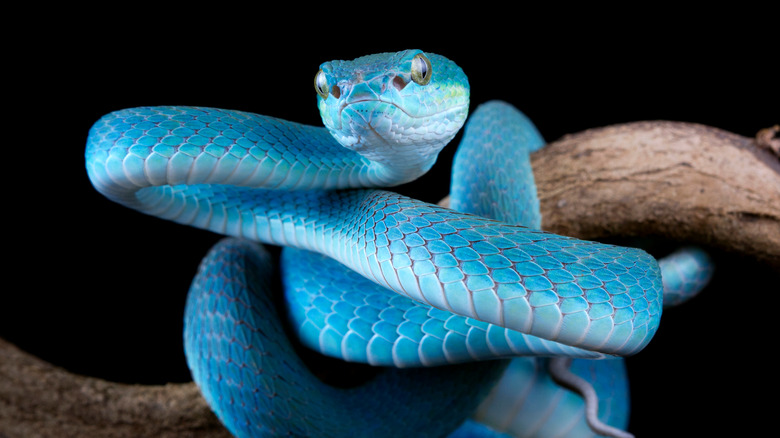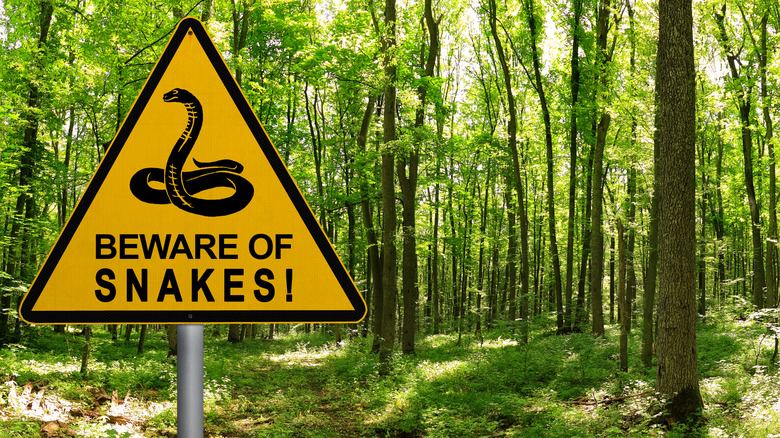The First Thing You Should Do When You Get Bitten By A Snake
If you're afraid of snakes, you're in good company. A 2001 Gallup poll found that fear of snakes was the most common fear among American adults. 51% of respondents said they feared snakes, 11% more than the second most common fear, public speaking. Fear of snakes was less common than it was in Gallup's earlier poll from 1998, but it is still the most common fear among Americans.
Movies like "Anaconda" and horror stories about rattlesnakes and copperheads make the fears seem even more valid. But as the Mayo Clinic points out, the chances of being bitten by a venomous snake are surprisingly low. Only a fifth of all snakes in the United States and 15% of snakes across the globe are venomous. And per the CDC, antivenoms and bite treatments exist for the vast majority of venomous snakes, making it highly unlikely that a bite will lead to serious illness or death.
That said, snake bites are still highly stressful. And in the event that the bite is venomous, a rapid response can make the difference between an unfortunate accident and a deadly predicament. However, the best response isn't what most people think. In fact, going with what you see in movies could make the situation even worse.
Hold still and get help
Few countries are as infamous for dangerous wildlife as Australia. So it's really no surprise that the Queensland government health department has strong guidelines on how to treat a snake bite. The most important thing, they say, is to avoid moving. If the snake has slithered off and you won't get bitten again, try to stay where you are. It's important to call for help as soon as possible, but try to do it from a mobile phone. If you can't, send someone to call for help. You should only run for help if neither of those options is available.
The site also stresses that you should not try to suck out the poison, nor should anyone else. You can put a pad over the bite to soak up some of the venom or wrap it in plastic wrap to preserve the venom for identification. It is also important not to chase the snake or try to catch it. Hospitals can test the venom, so you don't need the snake. Approaching it again only creates the risk of a second bite. Finally, try to apply a pressure immobilization bandage. Tourniquets are not a good idea, but a pressure immobilization bandage can help prevent the venom from spreading through your system. These might not seem like the most obvious actions to take, but they can make all the difference after a snake bite.

